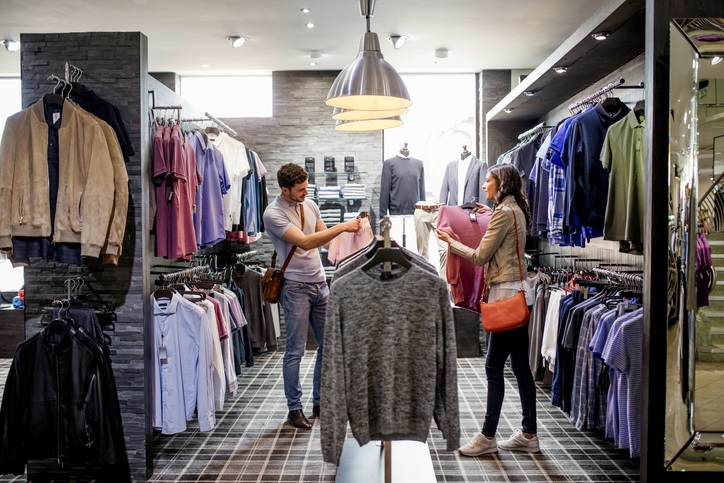Can this high street clothes retailer overcome the Covid-19 slump?
Debt is falling, but so is profit. The firm bets that the worst of the pandemic is now over.
17th September 2020 11:41
by Richard Hunter from interactive investor
Debt is falling, but so is profit, and the firm is betting that the worst of the pandemic is now over.

The pace of change enforced by the lockdown towards online sales was one which Next (LSE:NXT) was ready to embrace.
Its online presence had long been a cornerstone of its success, and where customers continued to shop – inevitably on a reduced scale – the business was quickly ramped up to meet demand.
In addition, with much of its store portfolio based out of town, the more recent tentative return to physical shopping has also played into Next’s hands.
At the same time, the company has been looking at ways to streamline its business and some of these changes will become permanent after a return to normality.
For example, full-year capital expenditure is expected to be largely in line with the previous year, with a large investment in warehousing to fulfil additional future capacity.
The group has also finessed its finances generally, including the previously announced sale and leaseback of its head office and a warehouse complex.
The suspension of the dividend and share buyback programme, combined with business rates relief, have also provided further support. Access to credit gives the company plenty of headroom if required.
The net effect of these refinements is that net debt is expected to reduce by £462 million to £650 million by the end of the year. Meanwhile, despite the outlook for the full year still being tainted by the previous effects of the pandemic, the estimated pre-tax profit has been increased to £300 million from the £195 million anticipated in the trading statement in late July.
The company has also generated net cash of £347 million for the period, which is no small achievement given the backdrop.
Some of this comes from the sale and leaseback operation, but was mostly driven by customers paying down their credit accounts, some of which subsequently became dormant as no more purchases were made.
Next maintains that it has now stemmed the decline of dormant accounts, and for existing customers has made a provision of some £20 million for bad debts which could potentially arise following the end of the furlough scheme and associated potential unemployment.
The numbers for revenues and profit are understandably ugly, with full-price sales for example having declined by 33%.
Although there has been a sharp improvement over the last seven weeks (up 4%), the company is attributing this to some pent-up demand and exceptional circumstances which it does not expect to continue. As such, the rest of the year is expected to show a 12% drop in full price sales.
- Why Nike and Adidas are down but not out
- Take control of your retirement planning with our award-winning, low-cost Self-Invested Personal Pension (SIPP)
The online business also saw a reduction in sales of 14% and profit of 28%, with the company’s central base case estimating that the worst of the economic effects of the pandemic have hopefully been passed.
The delicate balancing act is one which Next’s traditionally adroit business model is well suited to.
Even so, the pandemic has come at a cost and the effects are clear in the half-year report. The shares have unsurprisingly had a volatile run, with a spike of 82% since the early April lows not enough to prevent a performance which remains down 12% in the year to date.
Over the last year, the share price is flat, which is a creditable outcome as compared to the wider FTSE 100, which has lost 17% during that period.
Next remains well regarded among its peers, and the results have been warmly received given the tough trading environment.
By the same token, the company also engenders high expectations, such that the market consensus of the shares as a ‘hold’ could well remain in place for the time being.
These articles are provided for information purposes only. Occasionally, an opinion about whether to buy or sell a specific investment may be provided by third parties. The content is not intended to be a personal recommendation to buy or sell any financial instrument or product, or to adopt any investment strategy as it is not provided based on an assessment of your investing knowledge and experience, your financial situation or your investment objectives. The value of your investments, and the income derived from them, may go down as well as up. You may not get back all the money that you invest. The investments referred to in this article may not be suitable for all investors, and if in doubt, an investor should seek advice from a qualified investment adviser.
Full performance can be found on the company or index summary page on the interactive investor website. Simply click on the company's or index name highlighted in the article.